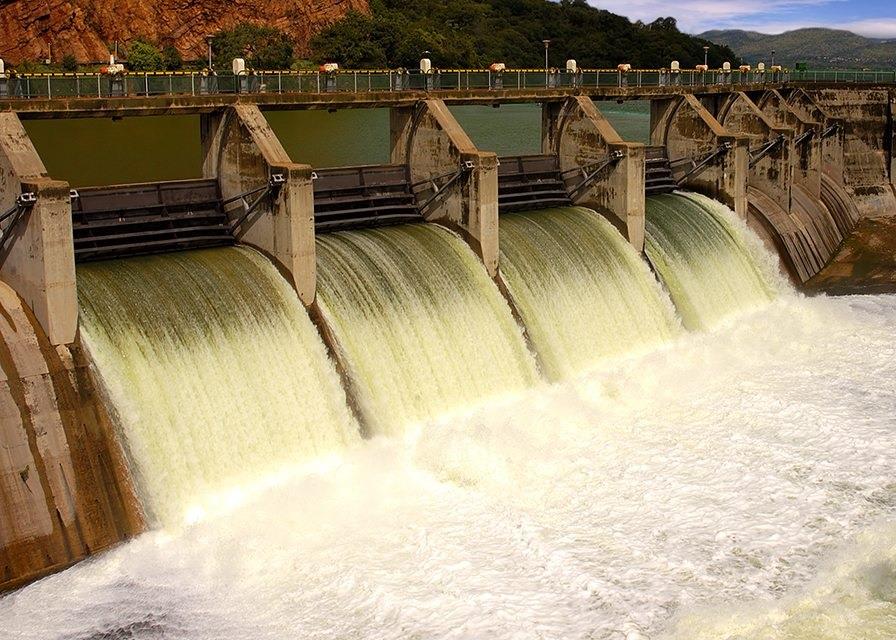
About 150 ministers, senior GCC government officials and regional and international business executives heard 20 expert speakers examine the infrastructure requirements in the Middle East and how they will be financed at Gulf 96, the annual conference organised by MEED.
The highlight of the event was a thoughtful and challenging address by Hashim Yamani, Saudi Arabia's Industry & Electricity Minister, who was joint-keynote speaker at the event. He set out the latest developments in Saudi Arabia's developing approach to how to pay for the huge amount of power plant and other infrastructure the kingdom needs for the 21st century.
Bahrain's Oil & Industry Minister Sheikh Isa Bin Ali al-Khalifa set the tone in the opening address at Gulf 96, held in Bahrain's Meridien hotel on 27-28 February.
'The Gulf states will need to spend about $40,000 million during the next 10 years on major infrastructure projects,' Sheikh Isa said. 'Everybody will agree that the financial outlay we are talking about is huge.. The decline in oil revenues over the years means that government spending can no longer be expected to provide 100 per cent financing for such projects.. Clearly, governments and the private sector will have to work together as partners in infrastructure development in the future.'
The view was echoed by Yamani. Having spent $165,000 million in building up its infrastructure over the past 25 years, Yamani conceded that rapid industrial and population growth had begun to place a strain on parts of the kingdom's infrastructure.
He also defined the scale of the challenge facing the country in the years ahead. 'It has been forecast that electric power (production) will increase from about 20,000 MW in 1995 to about 28,000 MW in 2000 and to about 59,000 MW in 2010,' Yamani said. 'The cost of these facilities is estimated to be around SR 138,000 million ($40,000 million) in 1995-2000 and SR 80,000 million ($23,000 million) in 2001-2005, and a total investment of about SR 438,000 million ($114,000 million) up to 2020.'
Private finance schemes
In a question-and-answer session, Yamani called on businesses proposing alternative, privately-financed approaches to infrastructure schemes to make their proposals easier for the authorities to evaluate. The sale of government stakes in Saudi power companies was not an immediate priority and would probably follow restructuring of the consolidated electric companies which are at present making losses.
Yamani picked up on themes and issues raised by the joint-keynote speaker Lord Young of Graftham, former UK secretary of state for employment and trade & industry in former prime minister Margaret Thatcher's government. Lord Young described his experiences as a minister leading privatisation in the UK and subsequently as chairman of Cable & Wireless.
Government would continue to be needed to set up basic infrastructure, but delivery of products and services should be left to the private sector in a competitive environment.
The demands on government continue to grow, he said. 'There is a great desire in the private sector for good investments. I believe that we should focus over the next few years to bring the two together, to develop the methodology that will save the demands on government but at the same time satisfy the requirements of a modern economy for a continually renewing infrastructure.'
In a session setting out the infrastructure issues for the region, Inder Sud, head of the World Bank's Middle East department, said the region was at a crossroads in its development. 'After having notched up very rapid advances in the 1970s and early 1980s, regional economic growth has effectively stalled in the past decade,' he said. 'The combination of very slow rates of aggregate gross domestic product (GDP) growth and very rapid population growth has meant that real per capita incomes have actually fallen by about 2 per cent over the period since the mid1980s,' he said. 'Restoring rapid economic growth has therefore become an urgent priority.
Aman Mehta, deputy chairman of the British Bank of the Middle East (BBME), set out the infrastructure finance issues from a commercial banker's perspective. They included the lack of capacity among regional banks to provide the huge amounts needed. There had to be a partnership between local and international banks if the money was to be found.
James Chapman, of Xenel Industries of Saudi Arabia, set out the basic elements that are required if there is to be a strong partnership between government and the private sector in infrastructure programmes. 'Governments must establish an enabling fiscal and regulatory infrastructure,' he said. 'Sponsors have to accept commercial risks, pay project development costs and arrange finance. Government and sponsors should work together to attract debt and equity.'
Uwe Jahnke, senior vice-president at Gulf Investment Corporation, defined the role financial institutions could play in financing infrastructure. Peter Felix, head of ABB (Middle East & North Africa), said that about one-third of all power projects in the world would be developed as independent power projects (IPPs) after 1999. The proportion in the Middle East will be higher, he said. Pierre Michel, chairman of Powerfin of the UK, set out his company's experience in IPPs. Powerfin is a subsidiary of Tractebel of Belgium which was a contractor and is now a shareholder in the Manah power project in Oman, the first IPP in the region.
Water issues were explored in presentations by an engineering consultant, a banker and a desalination specialist. Miles Hitchcock of Entec said groundwater use in the region is reaching a crisis point and this problem was compounded by pollution which was affecting aquifers. Marion Price, deputy general manager of Sumitomo Bank in London, said water projects were essentially no different from other projects and that banks were ready to finance them. She cited the Izmit water project in Turkey as a possible model for future schemes in the region. This involved raising $700 million in finance from local and international banks and investors. Adel Bushnak of Dar alTaqniya of Jeddah set out the case for examining more closely the potential of using desalination cost-effectively in dealing with pressing water needs. 'The key trend is the continuing decrease in the unit cost of desalted water,' he said. 'Desalination costs are expected to continue to decrease and become more attractive compared to most other options'
Telecommunications
Andrew Hearn, chief executive of Bahrain Telecommunications Company (Batelco), said huge changes were taking place in the telecommunications industry that would have big implications for the Gulf. Batelco planned to step up its capital investment programme in 1996 and beyond. Bob Wyatt, business development manager of AT&T International in Riyadh, described how telecommunications could be a key to growth. He set out the latest stage in work on AT&T's massive telephone expansion project in Saudi Arabia. This also entailed setting up new companies through an associated economic offset programme. Kevin Taecker, chief economist at Saudi American Bank in Riyadh, said the future of telecommunications infrastructure development was guaranteed by the fact that the region needed more services.
In a final session, a wider range of issues was explored. Edmund O'Sullivan, editor-inchief of MEED, said all six GCC states would probably be recording current account deficits by 2000, but that the combined shortfall would be modest and sustainable. However, the governments of the region faced important financial and development challenges. Brian Reeves head of ports at Rendel, Palmer & Tritton, said flexibility in port design was the new priority for the industry in the Gulf and beyond. Warren Riddell of Ernst & Young set out some of the practical issues facing companies seeking to set up private infrastructure schemes. 'From a practical point of view, there was a lot of activity in 1995, but very little action,' he said. 'In some cases, the scope of privatisation has been reined in and rescheduled on to a slower and less radical pace. In other cases, candidates for privatisation have been withdrawn or alternatives are being considered. This process of review has had its impact on programmes across the region. In some countries, we are still waiting to see the outcome.'
Gulf 96 was held under the patronage of the Prime Minister of Bahrain Sheikh Khalifa Bin Sulman al-Khalifa. It was sponsored by the Ministry of Oil & Development of Bahrain with Gulf Air, Ernst & Young and Philips.
You might also like...

Ajban financial close expected by third quarter
23 April 2024

TotalEnergies awards Marsa LNG contracts
23 April 2024

Neom tenders Oxagon health centre contract
23 April 2024

Neom hydro project moves to prequalification
23 April 2024
A MEED Subscription...
Subscribe or upgrade your current MEED.com package to support your strategic planning with the MENA region’s best source of business information. Proceed to our online shop below to find out more about the features in each package.




